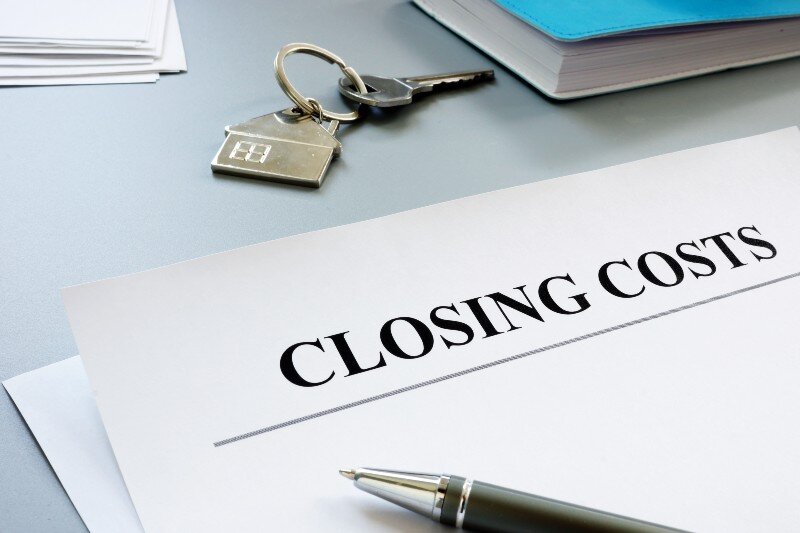
Closing costs are some of the biggest hidden costs of selling a house in Minnesota. It impacts buyers considerably as well. Many real estate sellers are left wondering how much their closing costs will be once they’ve secured a homebuyer for their single-family house. So, how much are closing costs in the current housing market?
First, you’ll need to figure out just how many closing fees you’ll need to pay in Minnesota, such as the home inspection fee, seller concessions, the mortgage application fee, the credit report fee, transfer taxes, and recording fees. You’ll also face the cost of the title search, the title insurance policy, and property taxes.
Read on to learn about today’s closing costs and how to calculate your closing costs. You will also discover the differences in closing fees from state to state. Ready to get started? Let’s go!
How Much Are Closing Costs Today?
Closing costs involve the many fees associated with completing a new home sale and finalizing a mortgage loan. Generally, closing costs take up 2 to 5 percent of the overall home loan amount stipulated in your Closing Disclosure.
For sellers, closing fees are around 4 percent of the house purchase price. Buyers may spend as much as $10,000 in closing costs on a $200,000 loan.
As a buyer, you will also need to consider the down payment amount you’re willing to put down on your home’s purchase price. Before you pursue a real estate transaction further, you will also need to ensure the current homeowner does not have any liens on the house.
Sometimes, you may see closing costs rise to 6 percent of the conventional loan. Therefore, a buyer may end up spending anywhere from $6,000 to as much as $12,000 on a $200,000 home loan to cover the closing costs.
As a buyer figuring out closing costs, you will need to consider escrow fees, the interest rate on your home loan, origination fee, and real estate attorney fees. Today, buyers may face a higher interest rate on their mortgage loans compared to the last few years.
Yet, some buyers are eligible for a VA loan, which has certain perks and discount points. Sometimes, the FHA loan may provide a good option if you don’t have too much money for the down payment.
Other buyers may consider the prospect of a refinance on their loan in the coming years once interest rates drop. However, refinancing should always be a careful consideration.
Sellers, however, will need to cover the home appraisal fee, which can determine the home value and provide the asking price.
Further, sellers are often responsible for covering the real estate agent commissions for both the buyer’s agent and the seller’s realtor. That amount is generally equal to 5 or 6 percent of the final house sale price.
Sometimes, to get a credit score over to a lender, buyers need to pay a credit report fee. Yet, besides the down payment, buyers can negotiate their closing fees, especially in a buyer’s market. However, if you’re in the midst of a seller’s market, you’ll have more trouble getting concessions from the seller and may have to cover more of the closing costs.
Does the seller pay many closing costs? Generally, buyers tend to cover the majority of the closing costs during the home-buying process, leaving the sellers with fewer fees. Sellers may offer concessions but can often only cover only a certain percentage of them based on your mortgage loan estimate value.
Overall, you can expect to pay anywhere from 2 to 5 or even 6 percent of your mortgage borrower amount to pay your closing costs.
Can You Estimate Closing Costs?
If you’re a first-time homebuyer, you will need to take time to estimate your closing costs. First, you may need to cover a fee for your loan application. The initial steps can include estimating your monthly mortgage payment, your property taxes, and the amount you’re willing to give toward your down payment.
To cover all the fees by the closing date, you will need to set aside money for any homeowners association (HOA) fees, title insurance, other title services, escrow account and recording fees, the underwriting fee, and home inspection costs. Generally, the buyers and sellers need to pay these fees upfront on closing day. You’ll need to put aside enough for a one-time payment.
Depending on the type of loan you’ve obtained from your lender, you may get mortgage points. You will also need to consider the prepaid interest on your loan and the monthly payment on your mortgage.
Furthermore, you will need to pay for homeowners insurance along with the monthly mortgage payment and closing fees. That’s often something handled by your mortgage lender until you pay off your mortgage completely. In addition, you may want to pay for private mortgage insurance. As such, you’ll need enough funds to cover the mortgage insurance premium.
When estimating your closing costs, you can expect to pay anywhere from $4,000 to $10,000 on a $200,000 home. Generally, you will need to consider numerous fees when covering closing costs, including:
- The application fee
- Homeowner’s insurance
- The home appraisal fee
- Private mortgage insurance
- The credit report
- The underwriting fee
- The transfer tax
- Property taxes
Need to Sell Your House Fast?
We make selling your house a simple affair and pay most closing costs.
Just fill out the form below or give us a call at: (612) 260-5577 to get your free, no-obligation cash offer!
How To Calculate Closing Costs
To calculate the closing costs on your home, you may benefit from using a closing cost calculator from Bank of America or another financial institution like myFico. To fill out the closing cost calculator and get your overall closing costs, you’ll need the following:
- The loan amount
- The purchase price of the home
- Your down payment amount
- The zip code of your property
- The loan type
- The length of the loan
Once you enter your loan information and other pertinent details, the calculator will give you an estimate of your closing costs. That way, you can budget enough money to complete the home sale. You may want to seek seller concessions to reduce your closing costs.
For home sellers, the cheapest ways to sell a house often include pursuing the For Sale By Owner (FSBO) home sale route. That way, you won’t need to cover real estate agent commission fees. You can save up to $18,000 if you sell a $300,000 house to a cash buyer since realtor commissions often cost as much as 6 percent of your final home sale price.
You can also look at public records of other properties recently sold in your area (these are generally easily found online).
Do Closing Costs Differ State-By-State?
The purchase price of a home varies greatly depending on the location. Further, closing costs can also change significantly depending on the state in which you live.
For example, the average closing costs in 2021 were $8,183 in New Hampshire and $7,964 in Massachusetts.
At the same time, the average 2021 closing costs were $2,802 in Kentucky and $2,756 in Mississippi. In states like Delaware and New York, the 2021 closing costs were even higher at $17,859 and $16,849.
The local government and state government, including their laws, all impact the overall closing costs you can expect to pay per state. For example, certain states require buyers and sellers to work with real estate attorneys, which means they’ll need to cover lawyer fees.
In states with inexpensive closing costs, title or escrow companies handle everything on the day of closing instead of real estate lawyers. If you’re in a state with high closing costs, it may help if you shop around and apply for loans with multiple lenders. Then, you can compare the offers and determine the general closing costs between lenders.
Once you apply for a loan, you will get a Loan Estimate document within three business days, in which you’ll see lender fees and other estimated closing costs. You can use these documents from multiple lenders to compare and pick the one with the lowest closing fees.
Average Closing Costs on a House
The mortgage tech business ClosingCorp published data showing that the average closing costs on a home in 2021 within the United States reached $6,905, with transfer taxes included. These costs reached $3,860 when taking out transfer taxes. However, closing costs vary significantly between states, so you’ll need to consider your own state’s average closing costs.

Conclusion
So, how much are closing costs in today’s real estate market? If you’ve read through the information above, you’ll know the answer. You can generally expect to pay anywhere from $4,000 to $10,000 for closing costs on a $200,000 house. Essentially, that’s 2 to 5 percent of your home sale price.
If you’re selling a home, you won’t have the same closing costs as the buyer. However, you will likely need to pay 5 to 6 percent of the home sale price in real estate agent commission fees. To avoid these costs, you will need to sell your home under the FSBO process to cash home buyers in Minnesota.
The benefits of selling your house for cash include much lower closing costs, no realtor commission fees, a faster sale, and the opportunity to sell your place in its as-is condition.
So, if you’re looking to sell a house fast in Coon Rapids, contact a cash home-buying company. Remember that we buy houses Minneapolis residents enjoy, so contact us as soon as possible if you want to sell.
